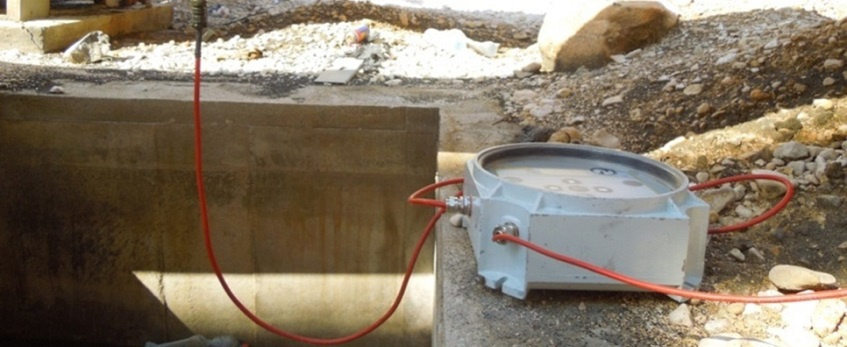For the First Time in the Country:
Employing the Measurement Method of Electrochemical Noise to Monitor and Control Corrosion of Oil and Gas Pipelines at UT

According to UT Vice-Presidency of Research, this achievement is the result of efforts of the research group of UT School of Metallurgy and Materials Engineering led by Dr. Saeed-Reza Allah-Karam. Dr. Saeed-Reza Allah-Karam, full professor of UT School of Metallurgy and Materials Engineering, elaborated on the significance of this invention and asserted, "Corrosion in industries is a crucial issue that results in imposition of considerable annual costs and, in some cases, fatal or natural mishaps. Pipelines and reservoirs are among major sources of massive losses in the oil and gas industry. With over one hundred thousand kilometers of oil, gas and water pipelines, Iran has one of the highest traffic densities of pipelines in the region.
UT professor Dr. Allah-Karam then added, "In principle, electrochemical noise is regarded as the accidental nature of process of corrosion. Such transformations which stem from speed of fluid motion, temperature alterations, PH and also the chemical composition of fluid, in a positional way, cause a reduction in physical properties and endurance of metals against corrosion. Positional corrosions then lead to formation of holes through creation of noises in the potential and the current of the metal. Burgeoning and development of holes and cracking through protection layers could also be the cause of electrochemical noises. As a result, the nature of corrosion, especially positional corrosions which are among the most effective factors in destruction of equipment such as pipelines, is recognized in this method of measurement of oscillations. It is also worthy to be advised that other methods of monitoring positional corrosions are very limited and costly.
The supervisor of research team of this new invention asserts that the most significant applications of measurement methods of electrochemical noise include:
- Monitoring and controlling the corrosion
- Determining the mechanisms of corrosion
- Studying special procedures of corrosion
- Optimizing the amount of injection of deterrent materials to maintain corrosion
Dr. Allah-Karam then added that this method has been applied online for the first time to optimize amount of injection of deterrent materials and maintain corrosion of the gas pipeline from Phase 6 to Phase 10 of South Pars Gas Company in Asaluyeh. It has also been employed in Sar-Khun and Qeshm refineries and the equipment were fully designed and manufactured domestically by the academic team. In the end, it is worth mentioning that this research plan was initiated in 2013 and the equipment were employed in gas pipelines following the process of design and completion of its manufacturing.

Your Comment :